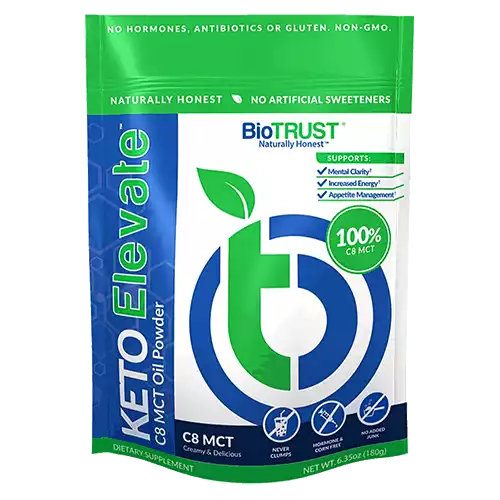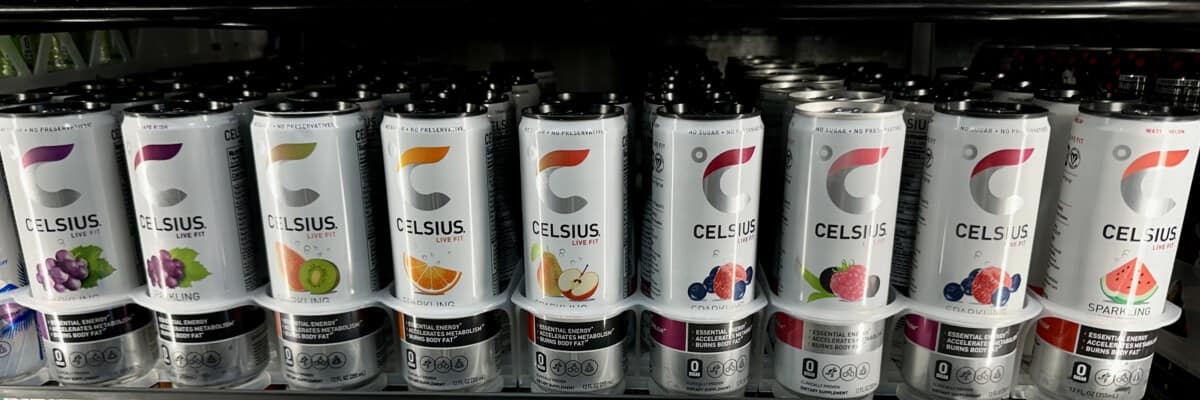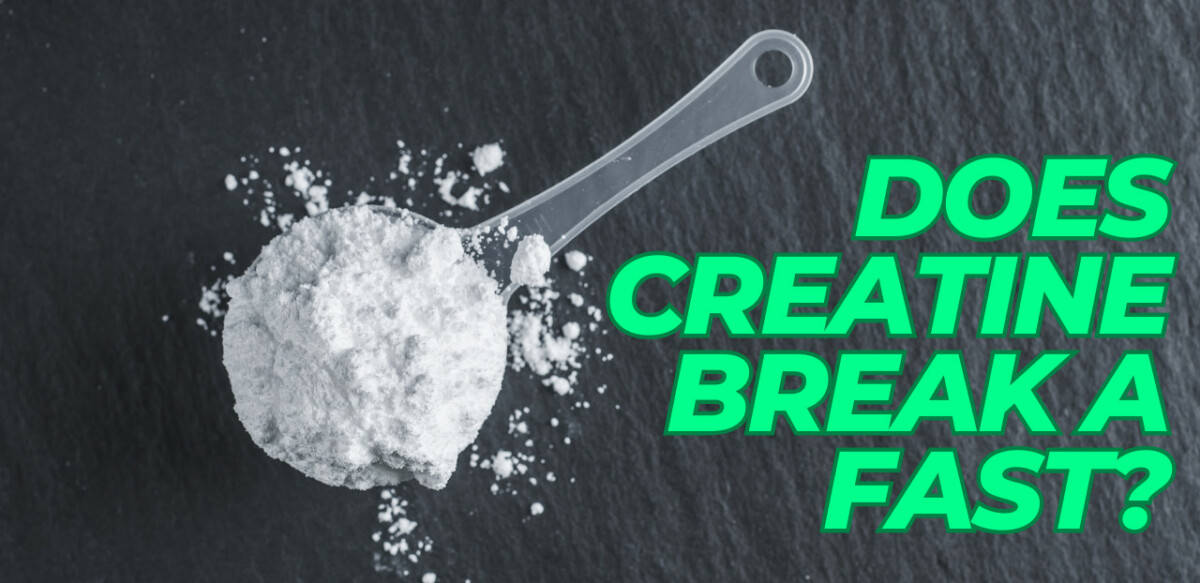So does MCT oil break a fast or does it not break a fast? It’s confusing!
You’re trying to stick to a healthy diet by fasting, but you’re not sure if MCT oil is allowed. Most people aren’t sure if MCT oil breaks a fast or not. Some people say it’s okay because it’s a “healthy fat,” while others say that anything with calories breaks a fast.
MCT oil has many benefits, but the last thing you want to do is go through all the effort of fasting if you end up breaking it. But MCT oil can help you maintain your fast by keeping you fuller for longer and giving you sustained energy.
So what’s the verdict? In this blog post, you’ll discover how MCT oil can break your fast in certain situations while accelerating your results in others. So it depends on your goals!
Key Takeaways:
- MCT oil can accelerate fat loss
- It can technically break your fast if you’re fasting for autophagy or following a pure water fast
- It won’t break your fast if you’re fasting for weight loss or fat loss
Can You Take MCT Oil While Fasting?
MCT oil has many health benefits, such as improving liver health, reducing inflammation, and improving gut health.
But MCT oil also contains calories. So if you’re following a strict zero-calorie water fasting diet, then it can technically break your fast.
You have to ask yourself why you’re fasting and what you want to accomplish. For example, if your main goals are weight loss, burning fat, improving insulin sensitivity, and boosting mental clarity, then taking MCT oil during your fast can speed up your results.
MCT oil breaks autophagy…
Yet if you’re fasting to increase autophagy, then putting anything other than your water in your body can significantly negate your results. In addition, any xenobiotic can create some biochemical reaction in your body that can alter autophagy.
Autophagy is the process in your body that clears out bad and damaged cells. It’s thought to help prevent chronic diseases while also delaying aging.
If you want to maximize your autophagy with fasting, then it’s best to stick with 100% water. While you might still get some of the autophagy benefits with fasting (especially when working out fasted), you shouldn’t expect the same amount if you have anything other than water.
MCT Oil and Ketosis
Ketosis is a proven way to switch your body from burning sugars and carbs for fuel to body fat stores. But once you start having too many carbs or sugars that spike your insulin, it’ll kick you out of ketosis.
Does MCT oil spike insulin? MCT oil will not spike your insulin since it’s a pure fat that your body processes differently than other foods. Instead of being processed by your digestive tract, it’s instead sent to your liver.
Your liver then converts MCTs into ketones as a fuel source. So even though the MCT oil contains calories, it’s not spiking your insulin and is not processed like regular calories.
Does MCT oil help you lose weight? The ketones converted in your liver from the MCTs are the same fuel source your body makes from your fat stores when you run out of carbs for fuel.
These ketones can help trigger a “metabolic switch” in your body that jumpstarts the burning of fat stores for fuel. So if your goal is weight loss, taking MCTs can help accelerate your results.
Coffee, MCT Oil, and if It Breaks Your Fast
If you’re following a more dirty fasting weight loss approach, drinking black coffee has its benefits. So coffee can naturally lower your hunger when fasting, which is the hardest part.
Coffee is a natural thermogenic which will increase your metabolism by burning more calories at rest. However, drinking black coffee or other fasting drinks is off-limits if you’re following a pure water fast.
Adding MCT oil to your coffee when fasting can take these benefits up another level. Since MCTs are converted to ketones, they can provide additional energy and brain fuel when fasting.
Black coffee contains no calories, and the minimal amount of calories in MCT oil are converted to ketones and won’t spike your insulin. So if your goal is weight loss, adding MCTs to your morning coffee is a great way to make fasting easier and speed up your results.
The best coffee creamer when fasting will contain MCTs. Specifically, C8-MCTs (caprylic acid) are your body’s preferred form of MCTs. They’re the most efficient and quickest to be converted into ketones.
This is a much better solution than drinking bulletproof coffee when intermittent fasting since you’ll be skipping the butter. While adding some grass-fed butter to your coffee isn’t the worst thing in the world, it can still throw your fasting results off course.
Best Time to Take MCT Oil While Intermittent Fasting
Around 12 hours into your fast is the best time to take MCT oil. This is around the mark your body really starts to kick into gear with fasting.
So if you have your last meal at 8pm then at 8am the next morning is a great time to take MCTs. This is just a ballpark time frame, and if it works better for you to have it a little earlier or later, then that’ll work too.
Most people enjoy drinking coffee not too long after waking up. So These MCTs will help to kickstart your metabolism, give you an energy boost, add to your mental clarity, and help curb hunger.
You can take MCTs on an empty stomach but be careful. It’s easy to overdo it and cause an upset stomach. There are a lot of horror stories from those who took MCT oil on an empty stomach and had the runs bad.
It’s best to ease into taking MCTs if you’re new to them and not sure how your body will react. You can take them daily as you build up your stomach to handle them.
How much MCT oil should you take? Most stick with about a tablespoon per serving in their coffee or take it straight up. You can take multiple servings during your fasting window if your body can handle it.
Negative Effects of MCT Oil
So what are the negative side effects of MCTs? The biggest con is that they cause an upset stomach, especially if you’re not used to them. This is especially true if you take them on an empty stomach.
If you’re new to MCTs, it’s best to start with a small amount (1 tsp) and work your way up as your body gets used to them. Over time you can increase the dosage as your body adjusts.
MCTs can also be expensive if you’re on a budget. For example, you can find them for around $20-30 for a small bottle which will last most people a few weeks.
But many MCT oils use a blend of multiple different types of MCTs. While this is cheaper for the manufacturer, it can reduce your results. Different types of MCTs can be harder and take longer for your body to convert into ketones.
Coconut oil also contains much more lauric acid (C12-MCTs), which is significantly less ketogenic than C8-MCTs. One study found C8-MCTs to be six times more ketogenic than lauric acid.
This is why it’s best to find an MCT oil or powder that contains 100% pure C8-MCTs like Keto Elevate. They’ve been found to be easiest for your body to make into ketones.
I’ve found MCT oil also to be rather messy. It’s only a matter of time before you get the oil all over everything, and it’s a pain to clean up. That’s why I prefer MCT powder which is a lot easier to deal with daily.
The MCT powder is much easier on your stomach than oil. Bad diarrhea for beginners who have taken too much MCT oil too soon is the usual side effect. So if this concerns you, try going with an MCT powder rather than an oil.
Support Many of the Keto Benefits Associated With Increased Ketones, & Support Them FAST, but Without the Difficulty of Doing Keto...
Increase Ketone Levels Inside Your Body to Boost Metabolism, Elevate Energy & Enhance Mental Focus
- 3X Better Than Coconut Oil, Butter or MCTs
- Heightened energy levels
- Reduced cravings & appetite
- Graceful aging
- Healthy metabolism
- Increased mental clarity & focus
- Heightened physical performance and recovery
Conclusion
MCT oil is an excellent addition to your intermittent fasting routine. It can help you lose weight, increase energy, and curb hunger.
MCT oil can technically break your fast. If you’re following a pure water fast and want to maximize autophagy, then MCT oil (and anything other than water) can negate your results.
But if your goals are weight loss, fat burning, increased energy, and mental clarity, then taking MCTs when fasting can accelerate your results.
The caloric content of MCT oil is negligible since they’re converted into ketones via your liver. These ketones can give you an energy boost and help trigger more fat burning in your body while fasting.
At the end of the day, if you’re able to fast for longer by drinking coffee and taking MCTs, then you’ll be better off. You’ll fast for longer, not make yourself miserable like water fasting, and you’ll get better results in the long run.
Start with a small amount if you’re new to them and work your way up. Look for an MCT oil or powder that contains 100% pure C8-MCTs as they’ve been found to be the most ketogenic.
Josh holds a Bachelor’s degree in Exercise Physiology and Nutrition Science. He’s a Certified Strength and Conditioning Specialist (CSCS) by the National Strength and Conditioning Association and he’s a Certified Personal Trainer (CPT) by American Council on Exercise. He’s worked as a Strength and Conditioning Coach at the high school and college levels. He has over 15 years of experience as a personal trainer and nutrition coach. He strives to bring inspiration and results for people to live healthier lives through smart diet and exercise.










